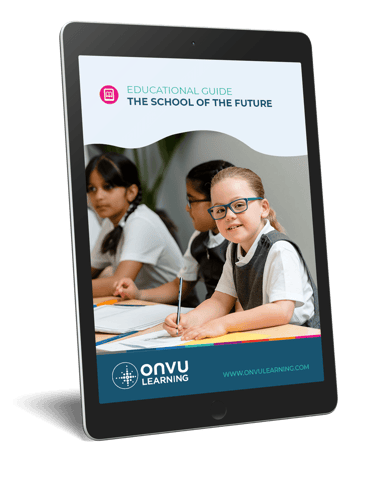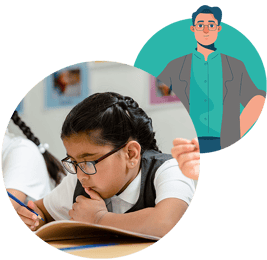- Lesson Observation
- 3 Minute Read



 How to provide meaningful lesson observation feedback.
How to provide meaningful lesson observation feedback.
The main aim of lesson observations is to improve teaching and learning outcomes over time. When carried out correctly they help to drive schools forward and change school cultures for the better.
Lesson observations can make a real difference to teacher development and engagement and contribute hugely to teacher CPD. However, this is only the case if the observation feedback is focused and meaningful for the observed teacher.
Once you have carried out a successful lesson observation it is important to correctly plan and deliver your feedback for maximum impact.
Can teachers provide meaningful lesson feedback?
This is a question that we hear a lot and the answer is…absolutely yes! Peers make great lesson observers as they understand the classroom better than everyone else. The classroom is a complex environment with many things happening at once, peers understand this and can use their understanding and knowledge to deliver useful and meaningful feedback from their classroom analysis.
How do you give good lesson observation feedback?
Here are our top tips to ensure you provide meaningful lesson observation feedback and make those observations worthwhile.
1. Make sure you have time!
One of the biggest barriers to providing meaningful feedback is time. Make sure that you plan a feedback session which will allow you time to properly discuss the feedback in depth. Rushing a few comments in between classes will be of no benefit to anyone, make sure you block out a designated feedback time.
2. Let the observed teacher talk first
By letting the teacher speak first about their experience you show them that their self-evaluation and experience of the lesson is just as valid as yours. Joint evaluation of what they felt went well or what they would like to have done differently allows for a much deeper analysis of the classroom experience and can help to clear up any questions you may have had. By discussing the lesson together you can really get to the core of their professional learning needs.
3. Don’t grade the lesson
Giving a lesson a grade is highly ineffective for development. Once a grading system is set in place focus on a number often takes priority over the actual content of the feedback. Make sure you are focusing on future development opportunities and areas of focus within your feedback.
4. Don’t generaliseMake sure the feedback you give relates to specific events during the class, comments like “the class were distracted” don’t help the observee learn or improve and can in many cases cause them to become defensive and lose interest in the feedback. Try giving focused accounts of what happened for example; “The task was only explained once and the class did not seem to understand what was expected of them, after this point they became distracted. What could you do next time to avoid this happening again?”
5. Create an achievable action plan
Action plans are a great way to visualise a teacher’s development needs but be careful not to overload the teacher with too many tasks as this can be overwhelming and ultimately unachievable. Choose 2-3 focused areas for improvement, set achievable relatable goals and a realistic timescale in which to achieve them. Using the example above an achievable goal would be to “ensure that students fully understand the task each time before asking them to apply it.”
6. Arrange the next observationIf you provide encouraging and meaningful feedback then the observee will be open to being observed again to demonstrate their improvements and commitment to learning. Before the end of the feedback session book in a follow up observation and really start to encourage a culture of collaborative learning into your school.
7. Be positive!
Last but by no means least be positive with your feedback! Remember that the reason for observations is to help teachers improve and be better educators. You are there to enthuse and engage teachers through encouraging development, and positive feedback is a great way to do this.
We are sure you are aware that lesson feedback can inevitably go wrong when the above tips are not followed….read our blog The Best & Worst lesson observation feedback to see what happens when things really do go wrong!
Innovative technology can really boost the impact of lesson observation. ONVU Learning's video lesson capture technology provides a holistic 360-degree view of the entire classroom environment, allowing for a true picture of teaching and learning which can be reflected on and analysed at the click of a button at a time that suits you. Learn more about ONVU Learning here.

The School of the Future Guide is aimed at helping school leaders and teachers make informed choices when designing the learning environments of the future using existing and upcoming technologies, as they seek to prepare children for the rest of the 21st century – the result is a more efficient and competitive school.
KEEP IN TOUCH WITH ONVU LEARNING AND RECEIVE THE LATEST NEWS ON EDTECH, LESSON OBSERVATION, AND TEACHER TRAINING AND DEVELOPMENT.